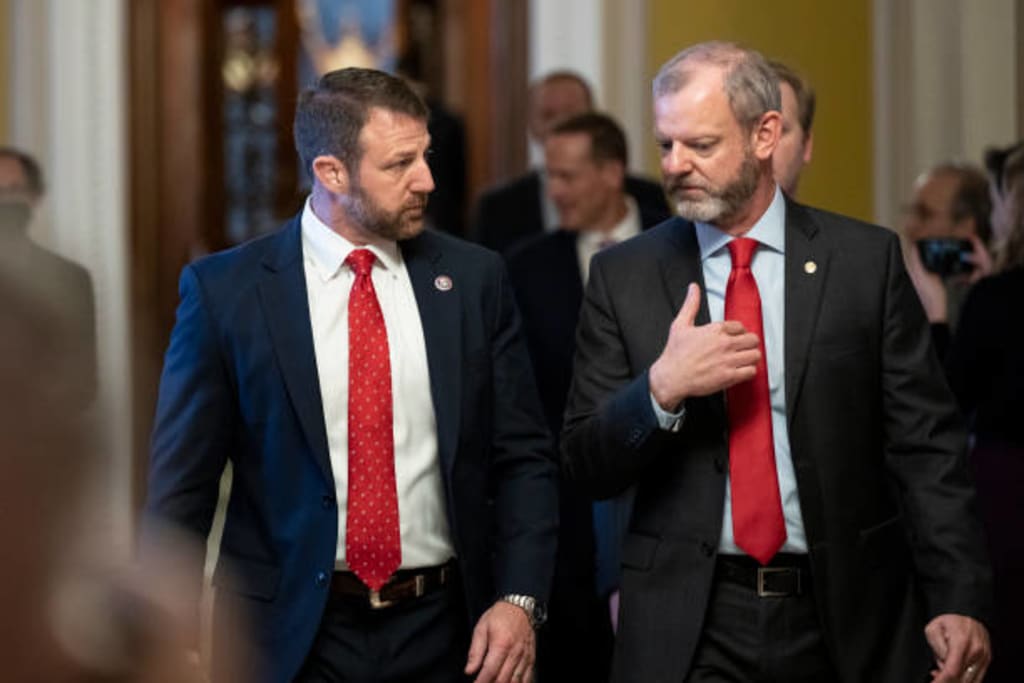Decorum and Statesmanship
Was the Regrettable Altercation Justified?

The recent clash between Republican Sen. Markwayne Mullin and Sean O'Brien, President of the International Brotherhood of Teamsters, during a Senate Health, Education, Labor, and Pensions Committee hearing has raised concerns about the state of discourse within congressional proceedings. While robust debate is an integral part of democracy, the overt escalation to a physical challenge underscores the urgency for a more measured and respectful approach.
One notable weakness evident in the confrontation was the departure from the primary focus of the hearing – addressing economic issues and the role of unions in supporting working families. The altercation between Sen. Mullin and Mr. O'Brien diverted attention from substantive matters, diminishing the integrity and purpose of the hearing. It is crucial for lawmakers and witnesses to prioritize the critical topics at hand to serve the public interest effectively.
Sen. Bernie Sanders, the committee chairman, rightly admonished the involved parties to refocus on the economic issues central to the hearing. However, his repeated efforts were met with defiance, emphasizing a broader issue within the political arena – the tendency to prioritize personal disputes over constructive dialogue. The weakness lies not only in the initial confrontation but in the failure of the individuals involved to recognize and correct the deviation from the hearing's purpose promptly.
Moreover, the incident revealed a lack of adherence to professional decorum, a fundamental element in the functioning of legislative bodies. Sen. Mullin's invitation to physical combat not only violated the established norms of congressional hearings but also set a concerning precedent for future interactions. Such behavior undermines the dignity of the Senate and diminishes public trust in the ability of elected officials to conduct themselves responsibly.
Another weakness illuminated by this incident is the limited intervention by Senate leadership to maintain order. While Chairman Sanders attempted to restore focus, the absence of more decisive actions raises questions about the effectiveness of existing mechanisms to handle disruptions during hearings. Senate leadership, including Majority and Minority Leaders, bears a responsibility to enforce decorum, ensuring that lawmakers adhere to the established rules of conduct. A failure to address such disruptions promptly contributes to a corrosive environment within the legislative branch.
To forge a healthy balance and rectify these weaknesses, it is imperative for lawmakers to prioritize a code of conduct that prioritizes respectful discourse and adherence to the primary purpose of hearings. The Senate should consider reinforcing its rules of decorum, specifying consequences for those who deviate from established norms. Such measures can act as a deterrent and promote an environment where substantive discussions take precedence over personal disputes.
Furthermore, both lawmakers and witnesses must recognize their role as public servants and leaders, setting an example for civil discourse. Lawmakers, in particular, should be cognizant of the impact of their words and actions on public perception. Statesmanship demands that personal grievances be addressed through appropriate channels rather than within the formal setting of a congressional hearing.
The incident also calls for a reevaluation of the Senate's procedural mechanisms for handling disruptions during hearings. Clear protocols outlining the steps to be taken in response to unruly behavior can ensure a swift and effective response. Senate leadership should work collaboratively to enforce these protocols consistently, emphasizing the importance of maintaining order and upholding the institution's dignity.
In conclusion, the recent confrontation between Sen. Markwayne Mullin and Sean O'Brien underscores critical weaknesses in the current state of congressional discourse. The departure from the hearing's central focus, the lack of adherence to professional decorum, and the limited intervention by Senate leadership collectively erode the integrity of the legislative process. To forge a healthy balance, lawmakers must prioritize substantive discussions, adhere to a code of conduct, and advocate for procedural mechanisms that swiftly address disruptions. It is incumbent upon the Senate to reinforce its commitment to statesmanship, ensuring that public trust in the democratic process remains unwavering.
Enjoyed the article? Feel free to subscribe for complimentary access to more content of a similar nature.
About the Creator
Bagwasi Dennis
I delve into the realms of fiction, psychology,health, lifestyle, music, art, science, and AI. If you appreciate the eclectic blend of insights, consider joining this community.
Follow me on X @dennisbagwasi
Subscribe for FREE to stay tuned.






Comments
There are no comments for this story
Be the first to respond and start the conversation.